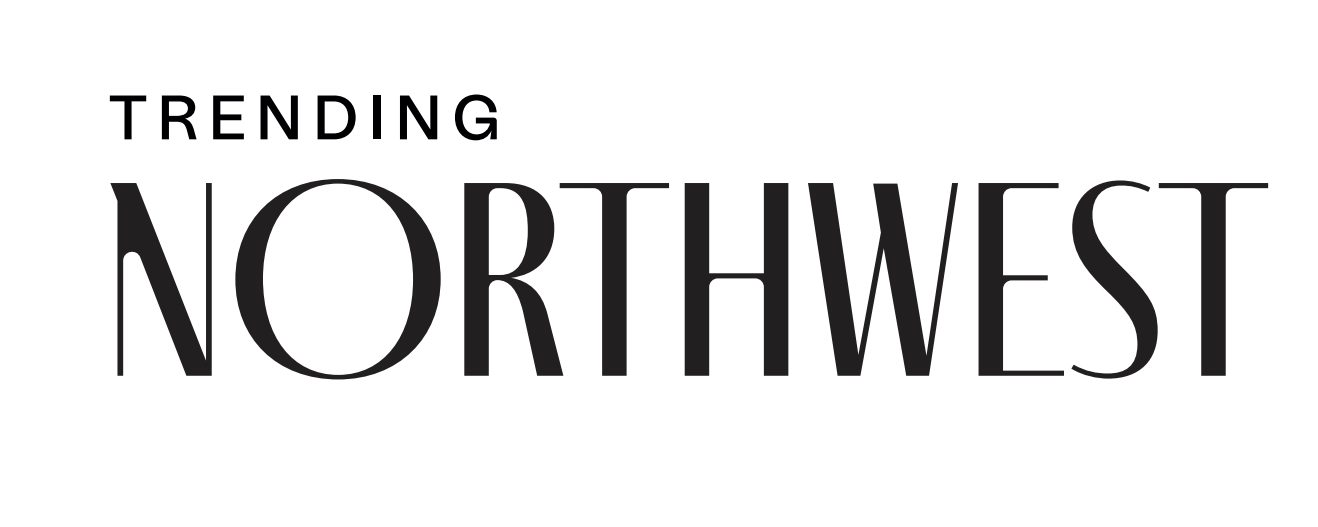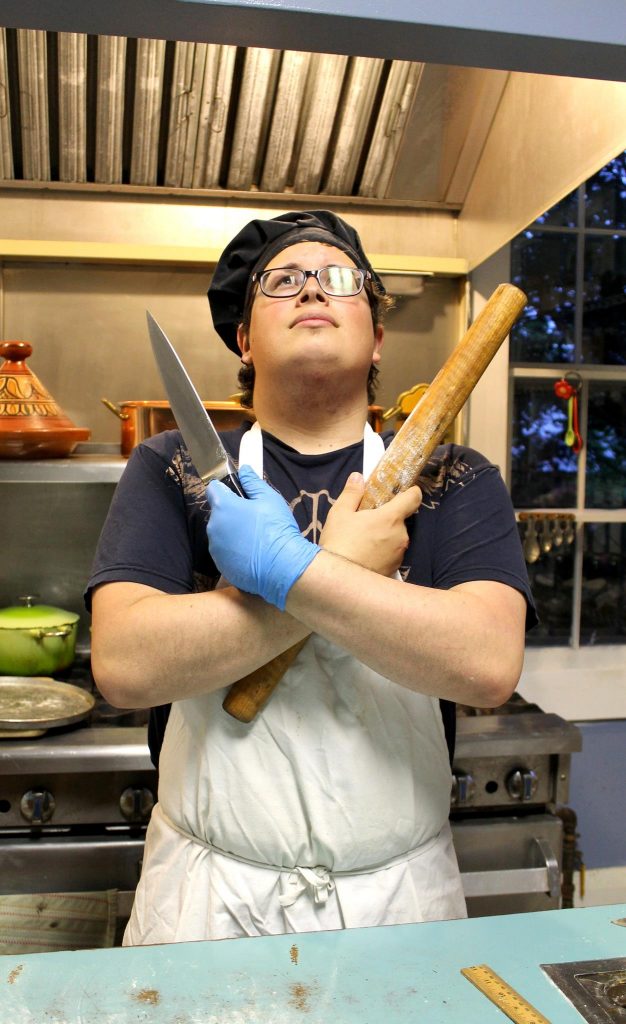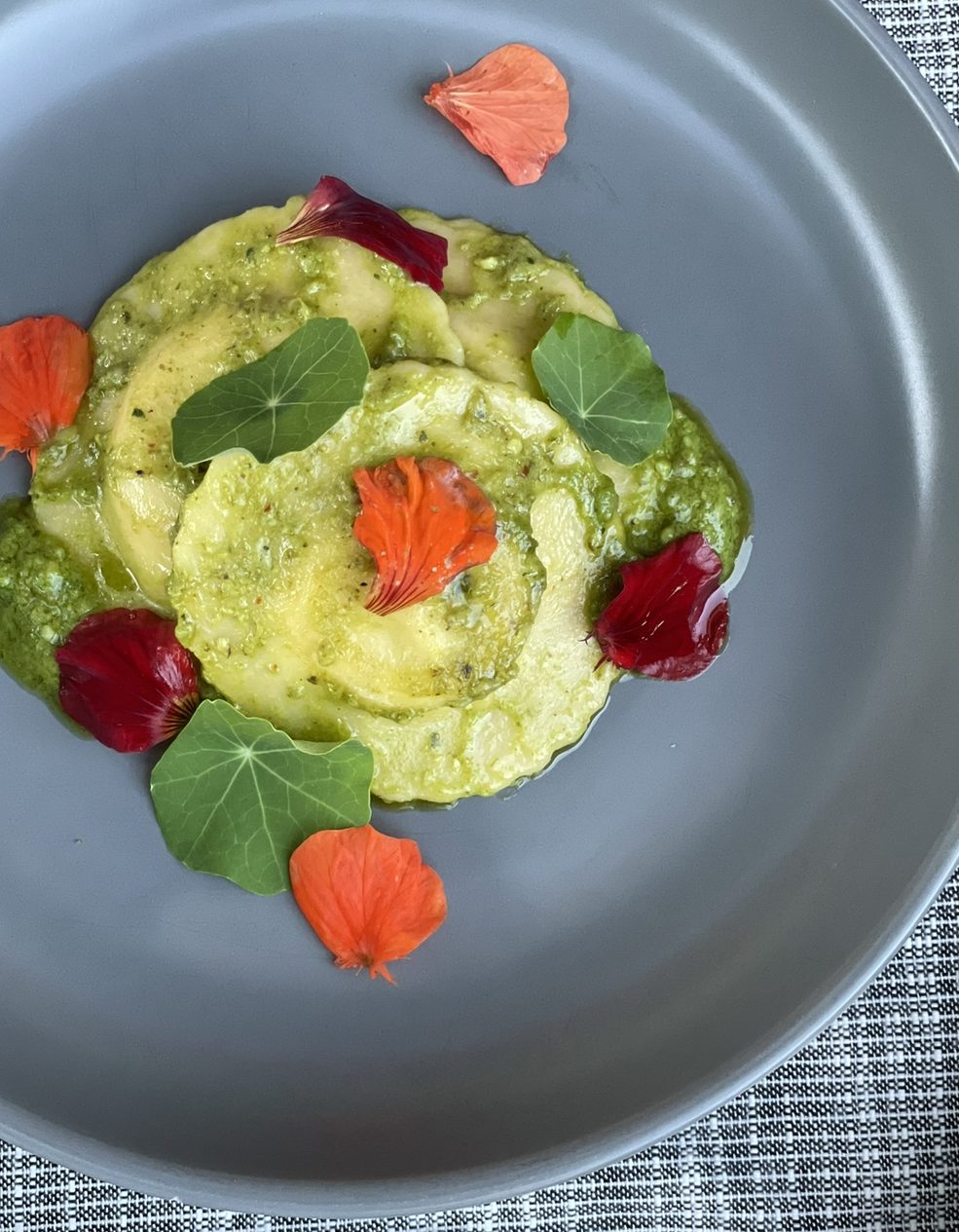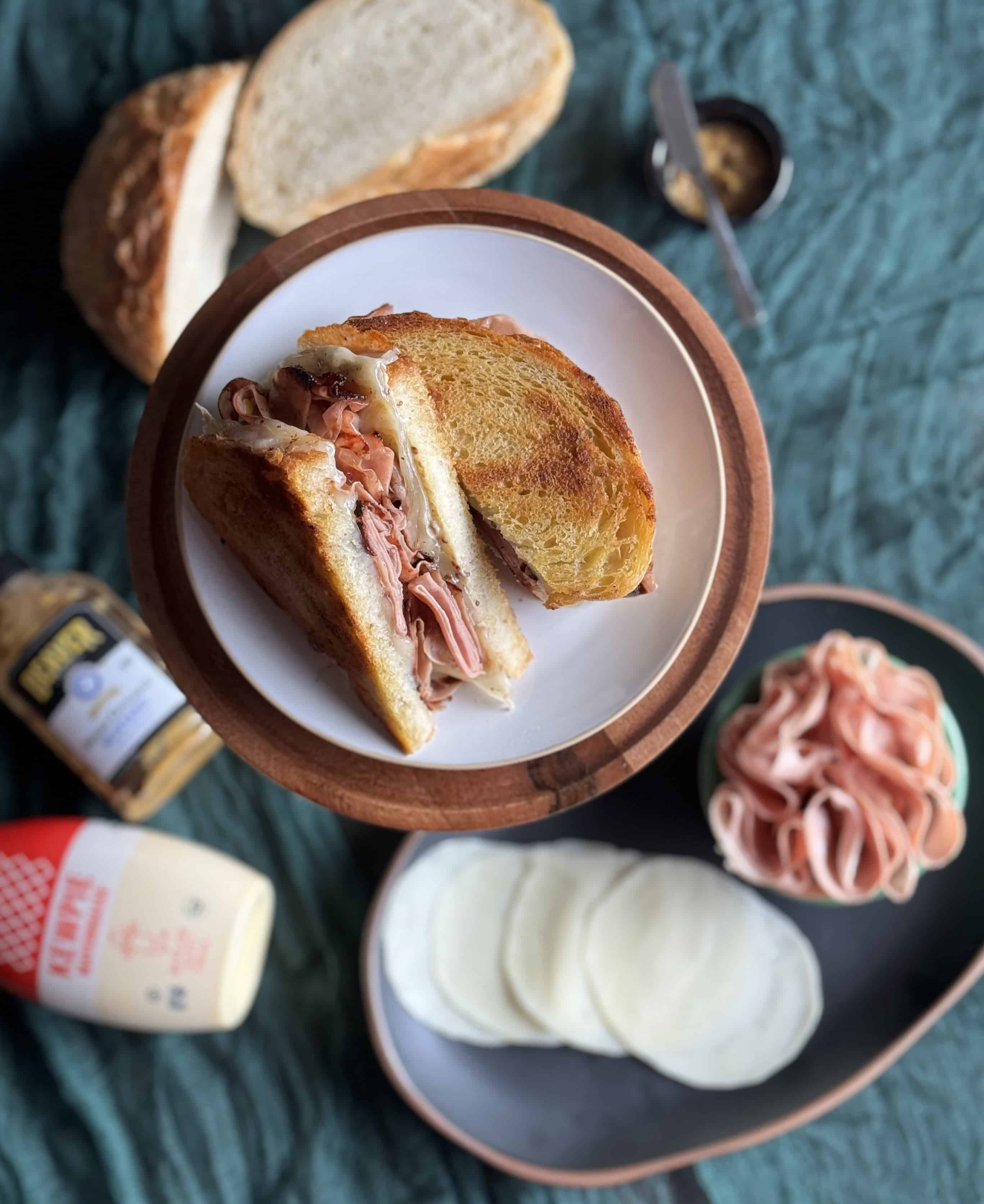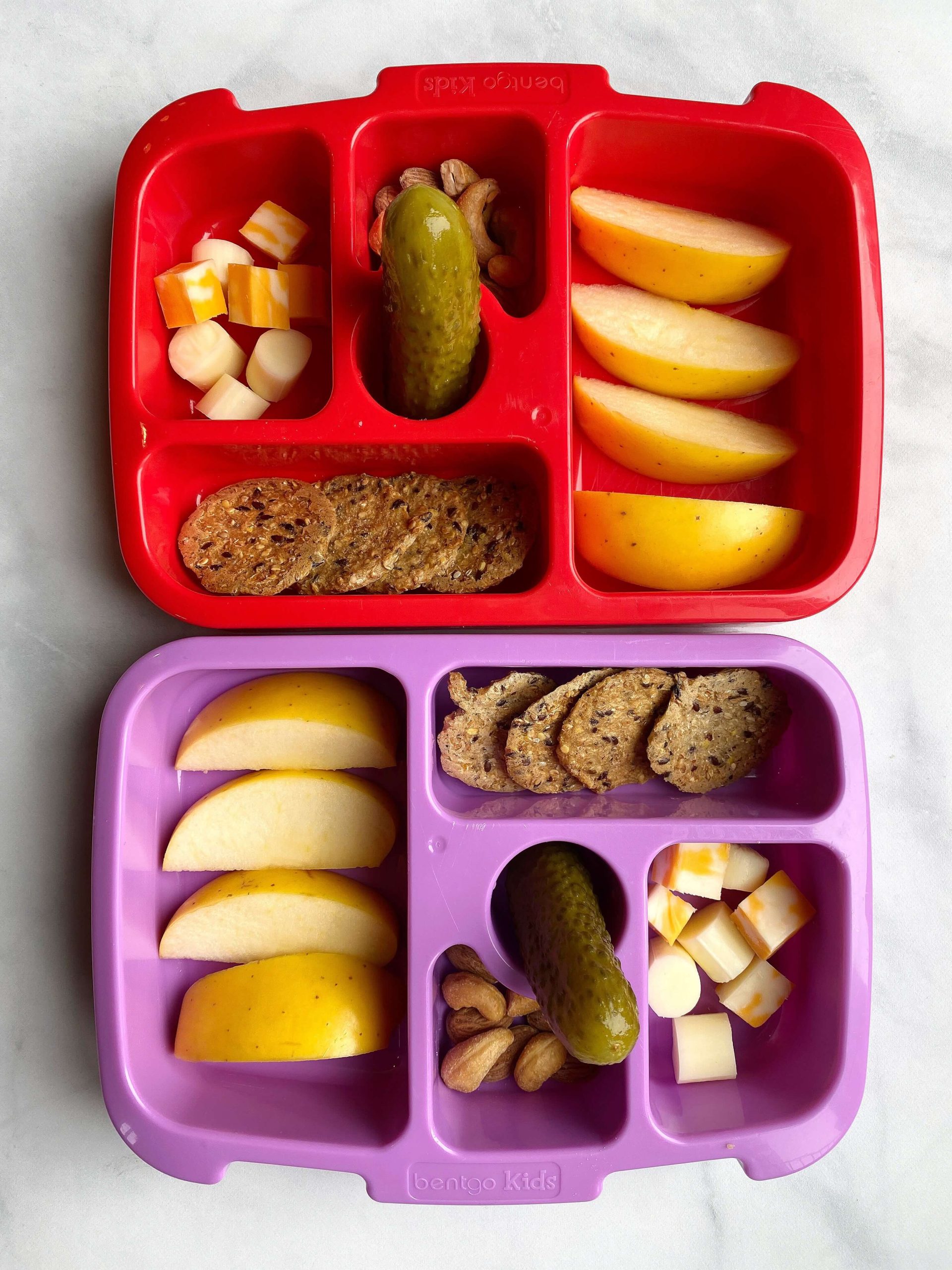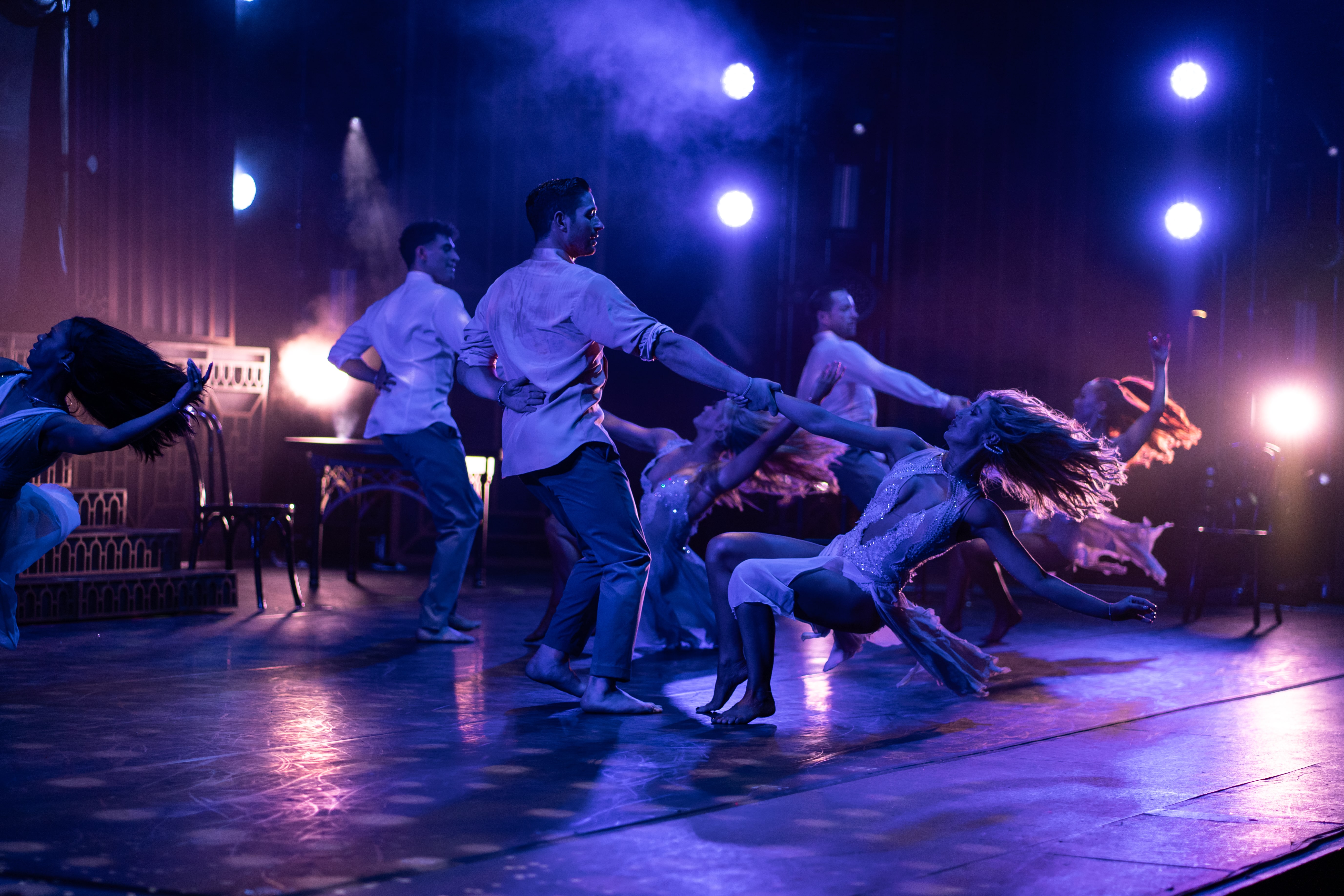Comment: The Mask That’s Killing Them
By Gavin Andrews
It’s Friday night, and everyone in the restaurant is wearing a mask.
I don’t mean the ubiquitous blue thermoplastic affairs, the ones carpeting the floor of your car like a new species of invasive algae. I don’t mean a garish but dubiously effective contraption ordered from Wish, or even a much-coveted N95, bought for half your weekly grocery budget from the local medical-supply scalper (this is normal in a first-world country).
I mean the mask they’ve put on for you, the one that says they’re okay and this is going to be fun, that just for tonight, the world isn’t burning down around us. The mask they’ve been wearing since before the pandemic.
You know, the mask that’s killing them.
Recently, I’ve witnessed several conversations on foodie forums and in culinary spaces regarding positivity culture in the depiction of the food and beverage industry, both in the Inland Northwest and on a larger scale.
I was disappointed but unsurprised to discover that many (chefs and consumers alike) found the idea of “negative” content in culinary media—topics ranging from genuine if pointed food criticism to any discussion of labor issues or systemic inequity—to be unpalatable. They didn’t want to consider these aspects of the food system. All style, no substance, a perfect Instagram feed stretching into infinity.
Too bad. We need people to listen, and we’ve needed it for a while.
As a lifelong student of hospitality and cuisine, as well as a food and beverage professional, I believe in the strongest terms that a “good vibes only” mentality does a grave disservice to any conversation about food (to say nothing about its documented negative effect on, for example, body image), dilutes our capacity to grow as restaurateurs and creatives, and actively contributes to the legion of silent injustices and hardships suffered by my contemporaries.
It’s true that most negative reviews of hospitality businesses are an extension of what Escoffier deemed “the freakish whims of the public”; arbitrary complaints based on an aggrandized sense of personal preference, with no significant capacity to attempt critique, the process of identifying specific legitimate problems and how they might be addressed. Insightful, constructive criticism in all aspects of life helps us correct mistakes, identify gaps in our skills and knowledge, and become richer, fuller people.
Where then has this kind of conversation gone? With the rise of the internet and social media, a large swath of food content that seems authentic and positive has become entirely transactional, and this advertising-in-sheep’s-clothing has largely supplanted the role of the now comically maligned food critic (Ratatouille, anyone?).
Many consumers are unaware that you pay to be at the top of a Yelp search, regardless of actual customer reviews on the platform. That beautiful young person on Instagram talking about the wonderful time they had at Smoke & Mirrors, the hot new bistro? In theory they’re supposed to disclose if they’ve been paid or received a product for free, but this level of transparency isn’t always practiced. Furthermore, food writers attempting to provide critical looks at cuisine who once had significant platforms in print media now compete for readership with every ad-padded food and travel blog under the sun. We’re often silenced by the algorithm, hedged out by the tumescent digital mass of thirty-minute weeknight chicken alfredo recipes.
Producers, consumers, and culinary artisans need to have the space and audience to be able to have honest discussions not just about critique, but about the uncomfortable realities of our food systems. We need to be able to talk about discrimination, substance abuse, wage theft (the most common form of theft in the US), union-busting, and other systemic problems exacerbated by the global pandemic without being shut down simply because it makes people feel weird—thesame argument currently being used to ban academic discussions of the civil rights movement or anything resembling a modern understanding of sex and gender in certain corners of the country.
This conversation about the difficulties facing service workers doesn’t have to happen tableside over a nice steak au poivre; that’s bad manners, but it needs to happen somewhere, and active disregard in favor of fair-weather, picture-perfect consumerism is deeply unworthy behavior.
Hospitality in some form is a core value of every extant human culture on the planet and has been since the dawn of civilization. What many people forget is that in most models this is a reciprocal relationship, that there is an obligation of kindness, decency, and empathy on the part of the guest as well as the host.
A fascinating side-effect of mask mandates in restaurants is that it’s easier than ever to identify guests whose convenience is of greater importance than the lives of those around them. Being told every day in no uncertain terms, to our faces, that we are existentially disposable, hasn’t done wonders for the collective wellbeing of the industry. We see you.
Insisting workers give service with a smile while absolutely nothing in the world is right or safe isn’t just cruel, it isn’t just gaslighting; it’s actively contributing to unprecedented suicide rates, homelessness, and substance abuse. One in six service workers live below the poverty line, more than double any other working population, and nearly none of us have health insurance. Cross-reference those trends with existing statistics about how those same issues already inordinately affect queer, BIPOC, and other marginalized communities, and you start to form a picture of what’s happening in the hospitality industry.
According to the FBI, hate crimes are nationally at a twelve-year high, especially crimes targeting Black & Asian Americans, with cultural community hubs such as restaurants often the site of these incidents. In our own area, we’ve seen increasingly bold acts of hate with repeated vandalizations and bomb-threats at our local synagogues, and the murder and subsequent memorial defacement of members of the local queer community. In 2022, despite all our progress, Spokane remains a difficult place to be different, and those challenges are magnified for service workers navigating the complexities and uncertainties of the pandemic.
I haven’t had a week pass in the last year without an industry associate sharing a video of some kind of horrendous physical attack by a patron on hospitality staff; these kinds of assaults have gotten so bad that, in the case of airlines, the matter has been brought before a special congressional panel. People are leaving the industry in droves, and restaurants are unable to re-hire their positions due to all of the above hazards and inequities, leading to an industry-wide staffing shortage that creates a death-spiral for quality of life and quality of service alike.
But most of us are still here. Why the hell are we still here?
Because we must eat, in the literal exchanging-labor-for-currency sense of the phrase, but also because we must eat; we need to experience new flavors, textures, to seek gustatory revelations. We love what we do, but lately love isn’t enough to traverse the ever-growing labyrinth of mundane barbs that encircles the garden of culinary joy, where food is the universal language that connects all times, peoples, and creeds.
We enjoy the people who show up for our successes, our triumphs, to share our limelight, to be part of something beautiful and special with us. We adore those moments with our guests, when we can bring them into our world, feast them, delight them, exalt them.
Moments like that are the most beautiful lies we can tell you, and sometimes we even believe them. Selling escapism in a time of plague is a wild ride, and I’ve seen some amazing views from high on that roller coaster.
But no matter how hard we try, we can’t escape the plunge.
We cherish the people who mourn with us when another friend can’t seem to crawl out of the bottle, or loses themselves in the opiate haze, when their light slips through our fingers and they tumble out into the dark.
We see who stays. We see who looks away.
Averting your eyes from suffering is the most natural, most human impulse in the world. We’re all exhausted by the world we live in, and infinitely more so in the last several years, when so many have experienced the profound loss of loved ones, of employment, of normalcy. This week, with the specter of war creeping over the horizon, I understand and empathize more than you can imagine with the craving for just one space where there is only easy laughter and the soft chime of glasses.
I want so desperately to give that to you, to have it for myself.
But having a holistic, authentic relationship with your local food system isn’t always going to be a celebration; sometimes it’s a slog, sometimes it’s a riot, and too often, it’s a funeral.
Your night out is built on a web of such socioeconomic and poetic complexity that I’ve spent a lifetime trying to unravel what it truly, fundamentally means to give and receive hospitality, but what I can tell you with certainty is that these systemic injuries and injustices need to be amended and healed before we can give you that beautiful lie again.
If you don’t want to listen to me on this, listen to Kwame Onwuachi on race and fame and power. Listen to Preeti Mistry on feminism and queer thought in the kitchen. Listen to Bourdain, the jagged and sour king he was, on the Johnny-Cash-covering-”Hurt” levels of slow, insurmountable pain of being in an industry that for so long has eaten the best, brightest, and most vulnerable of us alive.
There are some glimmers of hope; nonprofits like Big Table have started offering targeted help for people in the industry, providing mental health and COVID-19 resources. The US Bartender’s Guild offers grants for industry members who need emergency living or medical funding and conducted a significant relief program during the early months of the pandemic. We’re seeing an incredible push for better working conditions with successful labor organizations in previously unassailable anti-union strongholds like Starbucks and Amazon. Finally, there are a growing number of websites, programs, and hotlines for people struggling with moments of crisis.
We can’t afford to be silent anymore. We need you to hear us.
We need you to help us shape a world that offers all of us prosperity and dignity.
That conversation starts by listening.
Gavin Andrews
Gavin Andrews has spent his life as student of hospitality and gastronomy, holding degrees and certifications in culinary anthropology and alcoholic beverage nerdery. He began his career washing dishes in a local taqueria in his teens and has worked as a Manhattan night cook, underground sommelier, executive chef for an award-winning Red Mountain winery, and everything in between. When he’s not writing about the intersections of cuisine and cultural movements, both modern and historic, Gavin can be found enjoying tabletop roleplaying games, losing aux privileges for refusing play anything but melancholy queer breakup anthems, and forgetting his safety gloves while woodcarving. Follow him on Instagram here.
